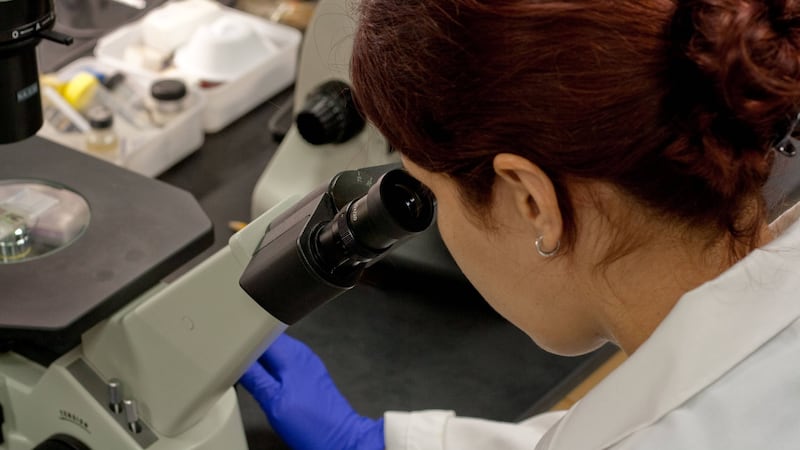The UK’s first human case of swine flu strain H1N2, very similar to what has been circulating in pigs, has been detected, the UK Health Security Agency (UKHSA) has said.
Routine surveillance in GP surgeries picked up the case after the person suffered a mild illness.
The UKHSA said it is now carrying out contact tracing to prevent further spread of the virus.
It is not known at this stage how transmissible the strain is or if there could be other cases in the UK.
UKHSA has detected a single confirmed human case of influenza A(H1N2)v, which is the first detection of this strain of flu in a human in the UK. We are monitoring the situation closely.
Read more in our news story: https://t.co/TqZ3kt1uEG
— UK Health Security Agency (@UKHSA) November 27, 2023
It is also too early to say if the strain could have pandemic potential.
There have been about 50 reported human cases worldwide of the H1N2 virus since 2005, none of them related genetically to this strain.
The person involved is not known to have worked with pigs and has fully recovered.
The case was detected as part of routine national flu surveillance undertaken by UKHSA and the Royal College of GPs, which was in place even before the Covid pandemic.
The patient was tested by their GP in North Yorkshire after experiencing respiratory symptoms. The strain was identified via polymerase chain reaction (PCR) testing and genome sequencing.
The UKHSA said people with respiratory symptoms should continue to follow the existing guidance – avoiding contact with other people while suffering symptoms and taking particular care around vulnerable people and the elderly.
The UKHSA said it was “monitoring the situation closely and is taking steps to increase surveillance within existing programmes involving GP surgeries and hospitals in parts of North Yorkshire.
“To assist in the detection of cases and assessment of transmission, those people who are contacted and asked to test are encouraged to do so.”
Meera Chand, incident director at the UKHSA, said: “It is thanks to routine flu surveillance and genome sequencing that we have been able to detect this virus.
“This is the first time we have detected this virus in humans in the UK, though it is very similar to viruses that have been detected in pigs.
“We are working rapidly to trace close contacts and reduce any potential spread.
“In accordance with established protocols, investigations are under way to learn how the individual acquired the infection and to assess whether there are any further associated cases.”
Chief veterinary officer, Christine Middlemiss, said: “We know that some diseases of animals can be transferred to humans, which is why high standards of animal health, welfare and biosecurity are so important.
“Through our animal and human surveillance systems we work together to protect everyone.
“In this case we are providing specialist veterinary and scientific knowledge to support the UKHSA investigation.
“Pig-keepers must also report any suspicion of swine flu in their herds to their local vet immediately.”








